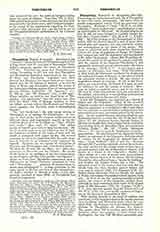

Theophilus, Bishop of Antioch. Eusebius in his “Chronicle” places the name of Theophilus against that of Pope Soter (169-77), and that of Maximinus, Theophilus’s successor, against the name of Eleutherus (177-93). This does not mean that Maximinus succeeded Theophilus in 177, but only that Theophilus and Maximinus flourished respectively in the times of Soter and Eleutherus. Lightfoot and Hort showed that Eusebius, having no such precise chronological data for the bishops of Antioch as he had for those of Rome and Alexandria, placed the names of the Antiochene bishops against those of contemporary Roman bishops (Lightfoot, “St. Ignatius”, etc., II, 468 sq., and “St. Clement”, etc., I, 224 sqq.). When therefore we find in the third book of Theophilus, “Ad Autolycum”, that the writer was alive after the death (180) of Marcus Aurelius, it does not follow, as even writers like Harnack and Barden-hewer suppose, that Eusebius made a chronological blunder.
The “Ad Autolycum”, the only extant writing of Theophilus, is an apology for Christianity. It consists of three books, really separate works written at different times, and corresponds exactly to the description given of it by Eusebius as “three elementary works” (Hist. eccl., IV, xxiv). The author speaks of himself as a convert from heathenism. He treats of such subjects as the Christian idea of God, the Scripture accounts of the origin of man and the world as compared with pagan myths. On several occasions he refers (in connection with the early chapters of Genesis) to an historical work composed by himself. Eusebius (op. cit.) speaks of refutations of Marcion and Hermogenes, and “catechetical books”. To these St. Jerome (De vir. illust., xxv) adds commentaries on Proverbs and the Gospels. He speaks of the latter in the prologue to his own commentary on the Gospels, and also in his epistle “Ad Algasiam”, where we learn that Theophilus commented upon a Diatessaron or Gospel Harmony composed by himself (“Theophilus … quattuor Evangelistarum in unum opus compingens”). A long quotation in the same epistle is all that survives of this commentary, for Zahn’s attempt to identify it with a Latin commentary ascribed in some MSS. to Theophilus has found no supporters.
F. J. BACCHUS

